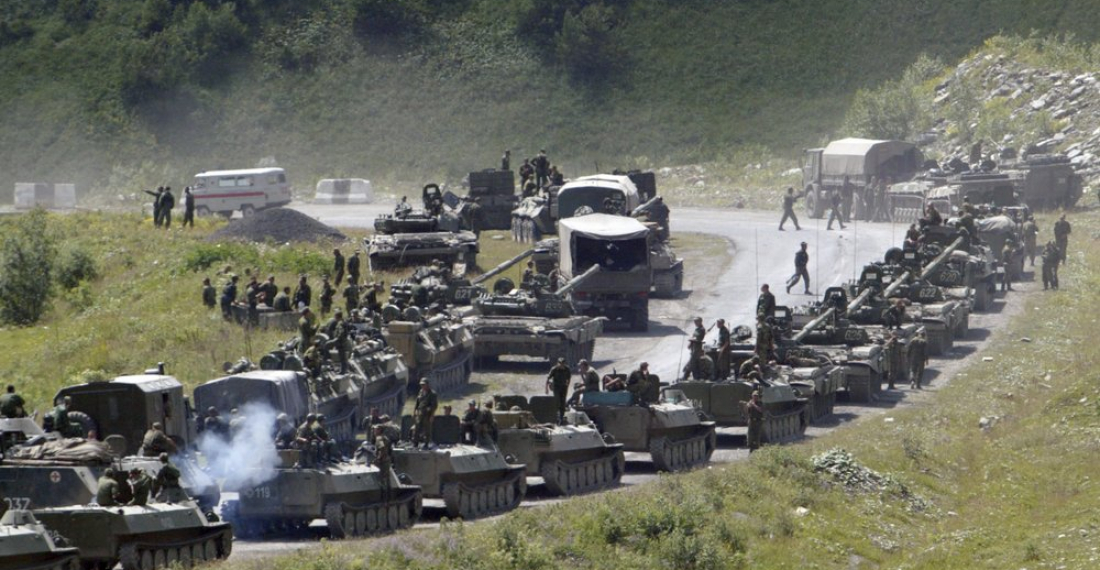French Minister of Foreign Affairs, Jean-Yves Le Drian, is worried that Russia might also invade Moldova and Georgia. "We are worried about the rest", the minister said in a radio interview according to international news agencies.
Le Drian denounced "a Russian drift toward interference" in other countries, noting Putin's repeated insistence of his country's alleged historical grievances since the fall of the Soviet Union.
French officials have warned that the crisis could quickly escalate along NATO's eastern flank in Europe, warning that Putin could also test the West's resolve by seeking to take control of the breakaway region of Transnistria, which has declared independence from Moldova, or other former Soviet territories.
On Thursday (24 February), EU leaders also spoke out about protecting Moldova and Georgia at the emergency summit in Brussels. They stressed that they "stand by both countries' sovereignty and territorial integrity", reports ANP.






